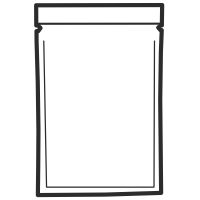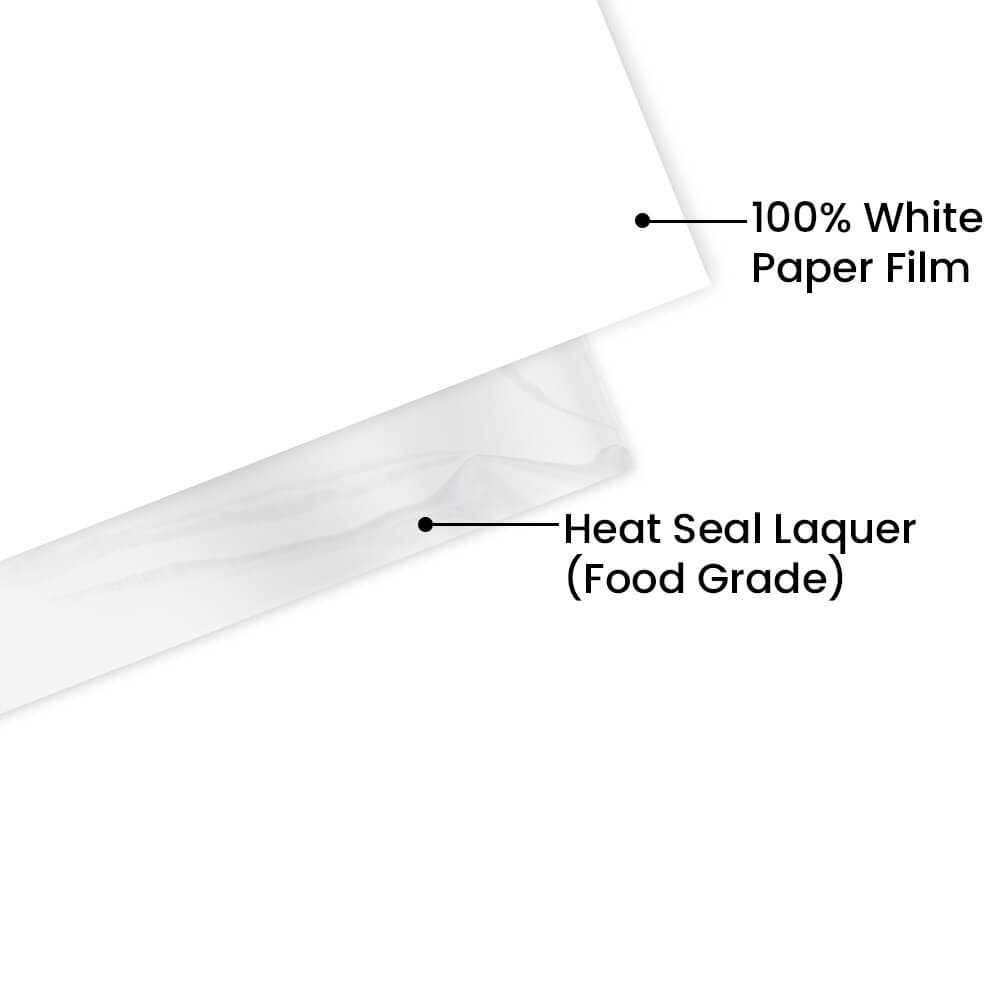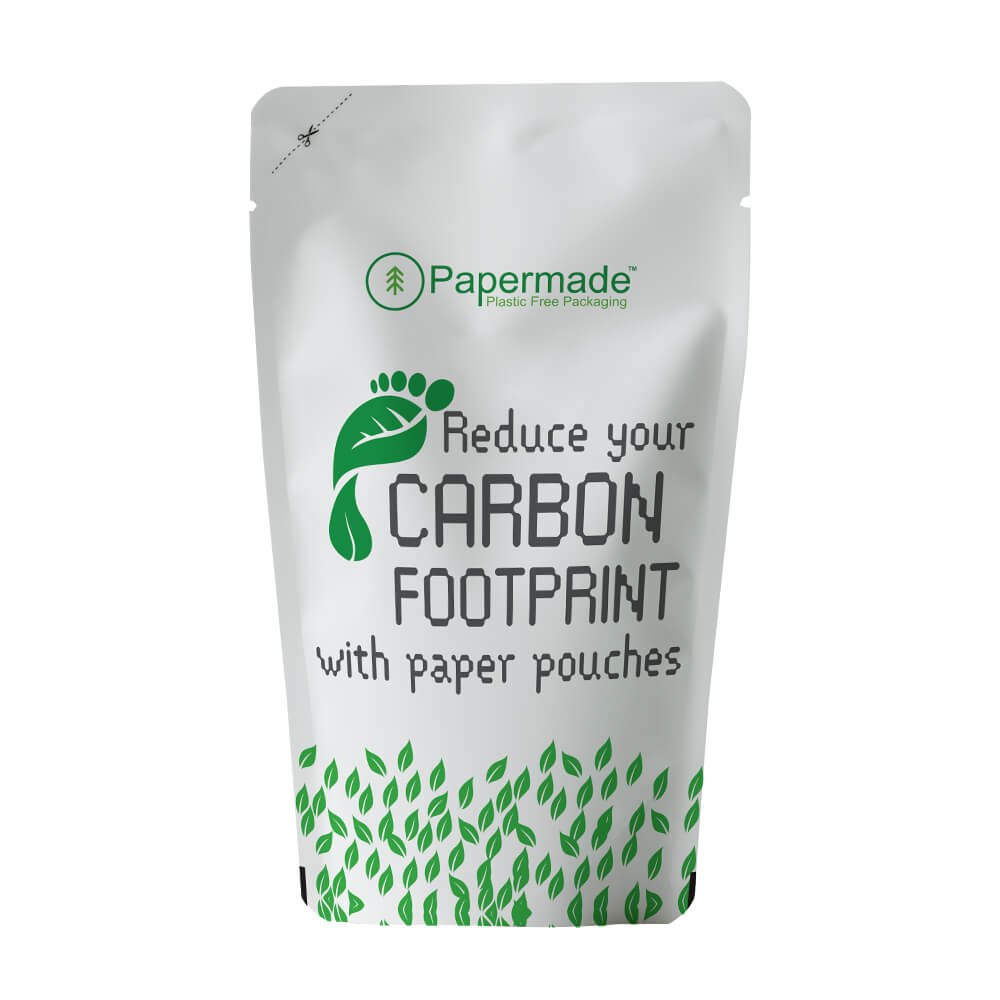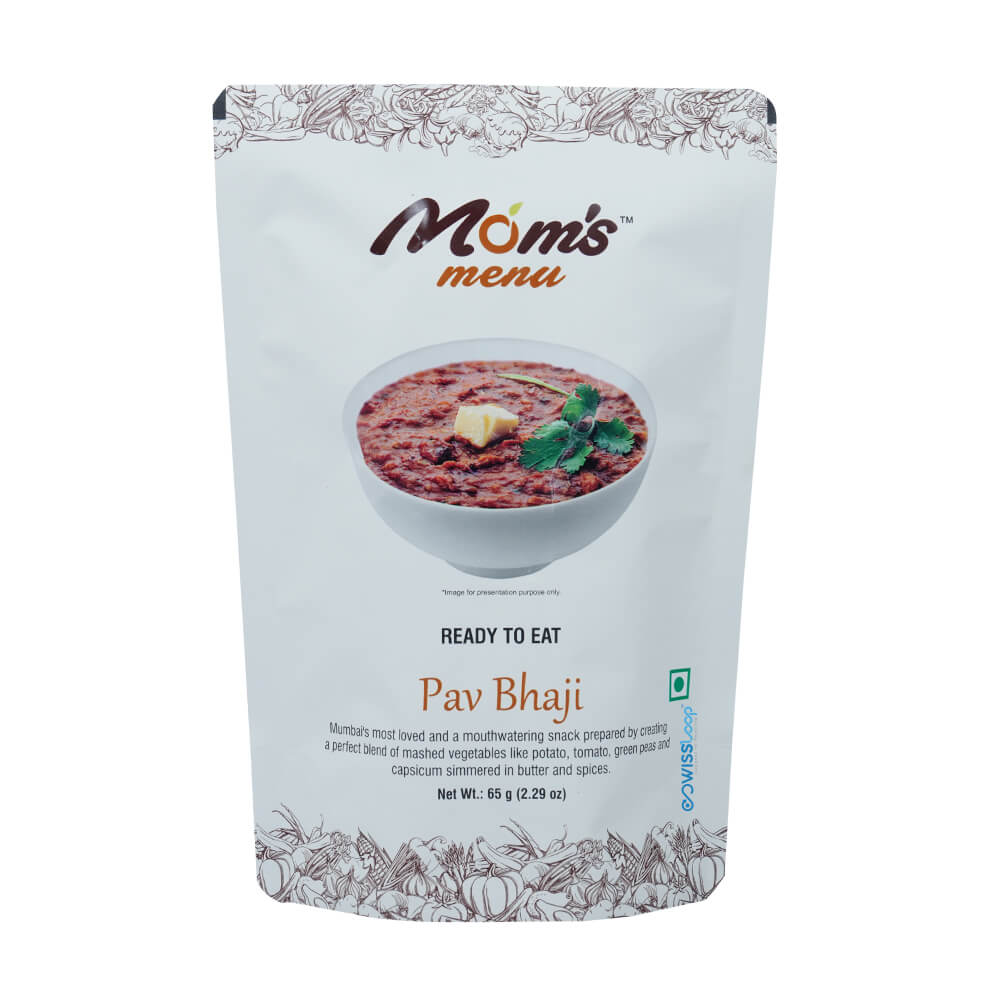100% White kraft paper
Compatible Style

Stand Up Pouches

Three side seal
Compatible Style
- Rotogravure
- Digital
- Static
- Sticker (Label)



Sustainability Properties

Recyclable Paper
Recyclable in the paper waste stream

Fossil fuel reduction
Reduces the amount of virgin fossil fuel content

Renewable materials
Made from regenerative materials grown on responsibly-managed plantations

Nontoxic Inks
Water or biobased inks than do not require petroleum-based solvents
Considerations
- 100% paper packaging is biodegradable and compostable, meaning it can be broken down and returned to the earth in a safe and natural way, reducing waste and environmental impact.
- It is a renewable resource and can be produced using sustainable practices, such as using responsibly managed forests and recycling paper waste. It has a natural aesthetic, which can appeal to consumers who are looking for eco-friendly and sustainable options.
- It is a great option for products that are intended for single use and do not need to be resealed. For example, a packet of chips that are opened and consumed in one sitting.
- Weight restrictions: 100% paper packaging may not be suitable for heavy products, as it can be less durable and more prone to tearing or puncturing.
- Shelf life restrictions: Due to the lack of moisture and oxygen barrier properties of paper packaging, it may not be suitable for products with a long shelf life, such as dried goods or non-perishable items.
- Multiple transshipments can be difficult: paper packaging may not hold up well to repeated handling and transportation, making it less suitable for products that need to be shipped multiple times or over long distances.
- Less durability: Paper packaging can be less durable than other materials, which may make it less suitable for certain types of products.
- Not suitable for liquids and oil-based products.
Sustainability Properties
Can compostable packaging hold liquids and oils?
Generally speaking, compostable materials are not compatible with wet or oily products over a long period. In certain applications they can work for products with short shelf-life requirements (~4-6 weeks).
Do your compostable materials leave any micro-plastics behind after biodegrading?
No they don’t. Our materials are certified compostable which means that they’ve passed thorough biodegradation testing to ensure they completely biodegrade into healthy organic matter.
Can compostable products and materials be recycled?
Compostable materials are designed to be composted and unfortunately that means they cannot be mechanically recycled. Although commercial composting systems are not currently widely available on a kerbside basis this is changing rapidly and so too is the rate of home composting.
How do I compost your products?
Composting is an essential part of a functioning circular economy. We’ve broken down all the basics in our How to Compost blog post.
Are these materials certified compostable?
All of Pouch Direct’s compostable films and laminates are certified compostable, including any valves and zippers. For further information please visit our Certifications page.
How long does it take to compost or biodegrade?
The time it takes a product to biodegrade depends on the conditions of the composting environment. Industrial or commercial compost facilities run at higher temperatures and certification protocol requires materials to biodegrade within six months. Home composts are more variable and depend on external factors such as temperature, humidity and how often they’re turned. Home compost certification requires materials to biodegrade within 12 months at a temperature around 30°C. For more information check out our certifications page.
Are your compostable and bio-based recyclable products plastic free?
This is a great question and the answer is nuanced. They don’t contain plastic as most people know it but they are made from bioplastic, which is technically a type of plastic. Grounded has a range of bioplastics that are made using our compostable Plantmade™ technology.
